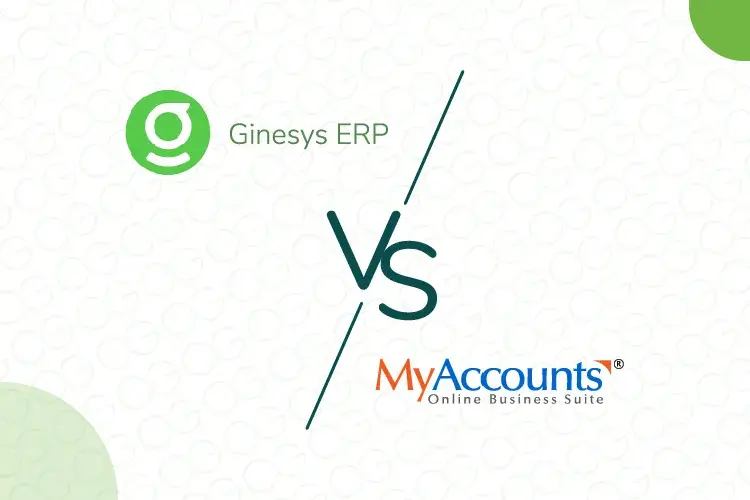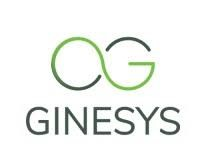Why Should You Consider Moving to a Better Retail Inventory Management Software than MyAccounts

As omnichannel retailers juggle diverse channels of sales, managing inventory can end up becoming difficult. This is because the inventory gets spread out across different stores and warehouses while orders keep coming in from different sources. A holistic image of the inventory is also key for stock planning. Considering the complexities involved in keeping a tab inventory, a single source of truth, that is an inventory management system is a game-changer.
Over the years, many companies have been using MyAccounts as a baseline solution for accounting as well as for managing warehouse and inventory. Enabling the digitization of inventory, MyAccounts WMS can be useful for logistics control, tracking stock movement, and automating pick and pack systems. As a result, retailers can gain complete visibility of the stock level. However, is that enough? Most likely no!
In today’s market, retailers need more than just stock tracking capability to stay competitive. Keeping in mind the challenges retailers face in inventory management, we will discuss the following points:
- The need for inventory management
- Does the inventory management capacity of MyAccounts suffice?
- How Ginesys ERP powers robust retail inventory management
Let’s dive in!

Get a robust inventory management now!
.webp)
Importance of Effective Inventory Management
As in the case of most process optimization and digitization efforts, streamlining inventory management has a positive impact on the profitability of the business. A well-functioning inventory management system supports auto-reduction of inventory once orders are accepted. At the same time, the system ensures that the inventory is automatically updated as the orders are returned. Given that this reduction and augmentation of stock happens dynamically, the consolidated real-time view of one’s inventory is key for stock planning.
Robust stock planning helps retailers avoid overstocking or poor replenishment. As a result, ventures won’t have their capital stuck in unnecessary item purchases – this is especially crucial for SMEs that often function with limited capital. On the other hand, insufficient stocks prove to be a roadblock against the enterprise staying competitive. With the lack of stocks, not only do businesses miss a cash flow opportunity but also risk losing their customer base, as the customer begins getting accustomed to other sellers during the stockouts.
Moreover, when customers place orders, timely order fulfilment is an important factor in boosting customer satisfaction and retention. In this regard, stock planning plays a major role, thus making a strong case for inventory management.
For example, let’s consider a situation where due to a sudden surge in demand for an item, a retailer keeps receiving order requests. The orders come from different sales channels and the entrepreneur accepts them in the hope of increased profits. However, due to a lack of visibility into the inventory, the retailer runs out of the items in the stock. This could delay the order fulfilment time for a certain number of clients or worse, prompt refunds while a fresh stock is already on the way. Such a scenario can harm the business in more ways than hampering the CX (Customer Experience). Now, the excess stock would leave the business with surplus stock and trapped funds. The brand could also suffer revenue leakage if the items are perishable and get spoiled.
In terms of operational efficiency, a well-oiled inventory management system helps businesses overcome logistical problems. As soon as the order and inventory are tallied, the business can plan the packing, the delivery service provider, and the delivery route.
Given the central role that inventory management plays in retail businesses, let us see where MyAccounts falls short. Knowing the shortcomings of the software would help retailers make more informed, retail-friendly choices such as the Ginesys One suite.

Are you managing your inventory effectively? Know what smooth inventory management consist of,

Limitations of MyAccounts
The fast-paced retail industry demands an ERP solution that strikes a fine balance between ready-to-use and customizable solutions. This is where MyAccounts primarily falls short as the software offers custom ERP solutions and demands retail-specific reconfiguration. Unless the retailer is tech-savvy and seasoned in the omnichannel retail business environment, furnishing a customization checklist could be challenging.
Consequently, brands may have to depend on the configuration the vendor voluntarily offers and make do with it or call for technical support time and again. Repeated technical assistance can be expensive and slows down operations.
MyAccounts is not ready-to-use with an extensive set of integrations. This means that the ERP data needs to be migrated manually or via custom integrations to other retail solutions such as CRM, OMS, and BI tools, which are necessary for the modern business landscape. Given the manual intervention in the data migration process, the data transfer could be erroneous, affecting the overall productivity of the operations.
In terms of accounting as well, many of MyAccounts’ retail clients end up depending on external accounting software such as Tally.
MyAccounts also doesn’t boast too many successful Exclusive Business Outlets (EBO) and Franchise Model ventures in its clientele. Therefore, single-unit retailers may get by with MyAccounts. However, the ventures aiming to scale their business from a single outlet and warehouse to a muti-warehouse and a multi-outlet setup, might need to reconsider their choice of ERP.
Ensuring a robust security system in one’s ERP software is integral to upholding compliance. The security system is weak in managing roles and policies. Thus, all the users can potentially edit transactions, both at the Head Office level and at the level of Point of Sales (POS). This can have a negative effect on compliance, missing invoices can also pave the way for stock shrinkage.
Another aspect of MyAccounts that retailers need to rethink is that the licensed software demands users to be largely dependent on hardware. In the age of cloud-based app, is such a reliance on hardware, which also incurs heavy hardware costs, necessary?

Smoothen inventory management today!

Understanding the Benefits of Upgrading – What going beyond MyAccounts could look like
Adapting a more retail-friendly cloud-based ERP solution than MyAccounts could help retailers leverage a ready-made, retail-friendly inventory management module. Ideally, a user-friendly inventory management software would also allow customization, thus helping the enterprise automate its unique business rules. One important thing that retailers should make sure of when making the shift to different retail ERP software is that the service provider offers quick customer support. With extensive customer support, brands will not have to limit themselves to the existing configuration of the ERP when a new business rule is implemented. As a result, the operational efficiency of the business will also not be hampered.
For businesses to thrive amid the fierce competition in today’s market, they need to ensure that they make data-driven decisions. This means that the ERP data must be crunched effectively, requiring an integrated retail management suite that MyAccounts users often miss out on. This is why upgrading the business to a different retail ERP could enable organizations to use CRM, OMS, and BI tools. A holistic retail tech suite implies an automatic data migration process from the ERP, leading to accurate data analysis for stock planning, growth forecasting, etc. Also, retail industry-tailored inventory management solutions often effortlessly cater to EBOs and franchises, helping them scale their business.

Is you ERP good enough?
While selecting ERP software, it is also important to consider the security system of the solution. A solution with various user-base controls is imperative to ensure a secure, manipulation-free inventory. Additionally, by moving out of MyAccounts, retailers could also get a cloud ERP that allows remote access to the inventory information, regardless of the Operating System and the device.
So, are you looking for a holistic replacement for MyAccounts? Among the host of inventory management solutions in the market, Ginesys ERP is one of the most popular options in the market. Here are a few well-known retailers who made the jump to Ginesys ERP:
- PPR Shopping Mall
- Shivani Shopping Mall
- Swathi Silks
- Balaji Enterprises
Curious? Let’s discuss more about how Ginesys can smoothen your inventory management efforts.

Exploring Ginesys as an Alternative
Over the years, Ginesys ERP has helped several businesses manage their inventory across locations. It is worth asking: What sets Ginesys apart from the usual custom ERP solutions? Ginesys offers retailers off-the-rack retail-specific features. Thus, installing the software in quick and easy, requiring minimal customization. Moreover, being tailored to the retail sector, the solution caters to both EBOs and multi-brand outlets (MBOs) of every size, aiding them in scaling up via proficient stock planning, growth forecasting, etc.
The user-friendly ERP software is a managed cloud-based retail software and hence does not have any dependencies on specific devices. Instead, one can remotely manage the inventory from any device and OS.
The following pointers further describe some of the key capabilities of Ginesys’ ERP solution that have made it a long-standing retail management tool for major retailers:
- Automated inventory sync: Ginesys ERP helps retailers connect the inventory to their point-of-sale (POS) systems, whether they are web, desktop or mobile POS solutions. Due to this integration, retailers can synchronize inventory transfers between warehouses and retail stores in real-time without any manual intervention. Stock-on-hand at the stores is also visible live from the ERP.
- Warehouse-level tracking: With Ginesys One’s ERP solution, retailers can achieve granular tracking of the inventory to the bin or rack they are in. Given this ability, businesses can pick, pack and ship both bulk orders as well as single piece ecommerce orders easily
- Item expiry tracing: Utilizing Ginesys ERP, enterprises can ensure that the perishable and FMCG goods are sold off well within the expiry date. As a result, businesses can plan sales and avoid losses on spoilt items.
- Ready set of integrations: Ginesys ERP comes with a ready set of integrations, with the most important among these being POS integration with the desktop-based Ginesys POS and the app-based Zwing. Apart from this, the next important integration is with various OMS systems and the Ginesys One OMS, Browntape. This allows ready integration with multiple online sales channels.
- Item cost management: One of the most important features of Ginesys ERP inventory management software is that it keeps a tab on the cost of the goods sold (COGS). The solution also helps you compare the COGS against the current value of goods on hand. The module proves to be invaluable for financial management and pricing strategies.
- Bulk Edit: Ginesys ERP allows entrepreneurs to bulk edit the attributes of the items in the stock. As a result, grouping items, planning sales of perishables, etc., becomes effortless.
- Robust customer support: Much like other Ginesys One solutions, Ginesys ERP enjoys quick customer assistance, ensuring a hassle-free user experience.
- Security considerations: Ginesys ERP’s inventory management module comes with various user-base controls for secure retail inventory management. Thus, unauthorised access to bills and other enterprise data is significantly minimized.
- Product categorization: Ginesys ERP provides a flexible three-level product hierarchy—Divisions, Sections, and Department. This allows retailers to efficiently categorize and manage item records. Further, the solution offers 40+ item fields, including customizable user-defined fields for Stock Keeping Units (SKUs), ensuring flexibility and tailored tracking across collections and manufacturers.
- Ready GST integrations: The Ginesys ERP is ready-to-use with EaseMyGST GST app for e-invoicing and for GST returns. This gives the Ginesys ERP a big edge as the number of invoices in any retail business is huge.
Want to find out more about Ginesys? Contact us today!